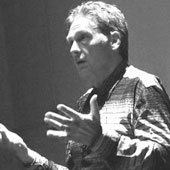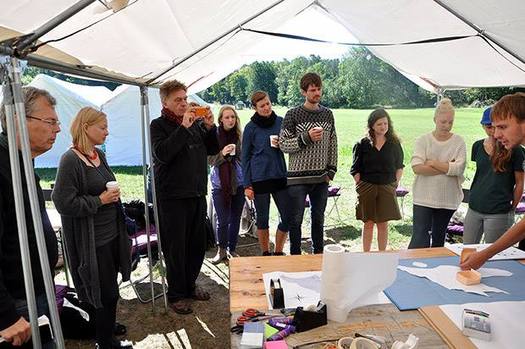
In what ways can design help people interact with living systems in ways that help both of them thrive? And what practical steps might one take to test the effect of small actions on the system as a whole?
This year’s Doors of Perception summer Xskool explores what it can mean in practice to move beyond a ‘do less harm’ approach to sustainability to a practice based on a commitment leave things better. Our mission: to deepen a practice in which regional development through social enterprise becomes a source of ecological health.
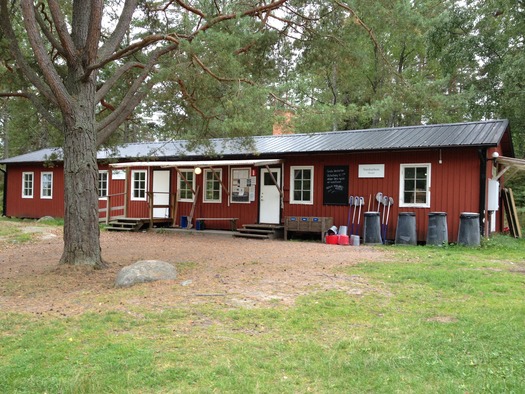
One of the Future Perfect hang-outs on Grinda
The summer school is based on the example of collaborative efforts around the world, some of them at the scale of a bioregion, where people are meeting daily life needs in ways that enhance, rather than degrade, natural and social assets.
These real-life examples include: farmers’ markets being turned into hubs for learning and knowledge exchange in regional food economies; the collection of food waste for composting and soil regeneration organized as social enterprises; renewable textile production connecting with recycling activities and managed as an ecosystem at the scale of the fibreshed; tree planting and care, watershed regeneration, sustainable urban drainage, blue-green corridors, and pollinator pathways, undertaken collaboratively as social forms of green infrastructure.
The summer Xskool is a partnership between Konstfack, Doors of Perception, and FuturePerfect Festival on the island of Grinda.
Xskool’s course director is John Thackara, director of Doors of Perception; other members of the Doors community will be involved. The Project Leader of Xskool is Michael Toivio from FuturePerfect.
This event builds on a series of experimental Xskool encounters over the last three years. Read here about last year’s Xskool Grinda 2013. And here is the Xskool Grinda 2014 Facebook page.
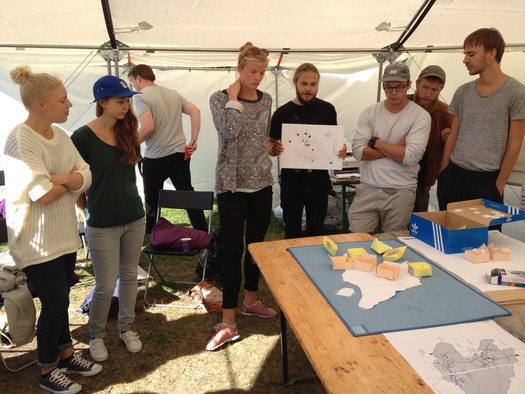
Participants will be among the first design teams to learn about shaping the design agenda for a bioregion. You will learn, in practice: how to explore resources – projects, places, individuals; how to talent-spot emerging solutions and innovators; how to showcase projects – to each other, to citizens, to business; how to determine what design can add, and how; how to ensure that the the work can be continued in the longer term.
Upon completing the course, in other words, students will have explored in practice how to identify opportunities for innovation where social and ecological systems meet. You will have learned about methods and processes appropriate for place-based innovation. You will have communicated and discussed your activities with non-specialists, and demonstrated an ability to reflect on how the work can be continued in the longer term.
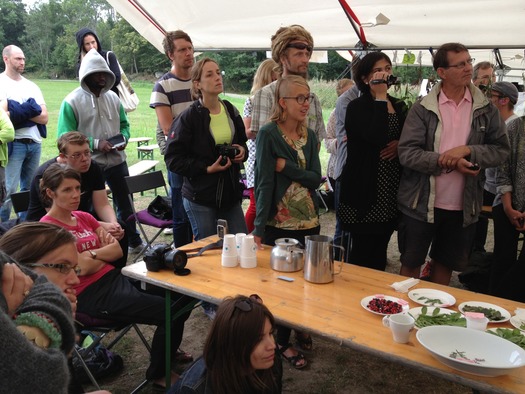
The Course and Dates
The course involves three stages: first, preparation in your own locality supported by online talks and readings; second, a week on Grinda Island in the Stockholm Archepelago as part of the Future Perfect festival; finally, a post event reflection.
Phase 1: Preparatory work – offsite (IT-distance)
The initial preparatory work can be done individually or in groups. Guided by introductory lectures, and preparatory reading, you will investigate a situation local to you – the place, the issues, the actors, and the relationships between them.You will receive digital feedback on this task.
Dates: Week 31-32, starting July 28
Phase 2 Workshop week – Grinda, Stockholm.
You will attend lectures, workshops, and group assignements, and develop and present your own project to the group in an exhibit for FuturePerfect visitors.
Dates: Week 33, starting August 11
Phase 3: Post event reflection (IT-distance)
Reporting and reflection individually or in groups (digitally).
Dates: Week 34-35
COURSE REQUIREMENTS
Eligibility: The summer school is open to European Union and EEA students who have at least least 30 credits in design within the field of arts, crafts and design or equivalent. The instruction language is English; therefore proficiency is required equivalent to Swedish upper secondary school course English 6/English B with a passing grade.
Fees: Tuition and a camping place are free to eligible EU and EEA students, but you will be responsible for the costs of travel to and from Grinda and food whilst there.
International students: For students from outside the EU and EEA who wish to gain the academic credits, a limited number of places is available on payment of a tuition and facility fee.
Details from Michael Toivio.
Grinda only: A limited number of scholarships is available for students from outside the EU and EEA, and professionals, who do not need the academic credits but would like to participate in Xskool on Grinda only.
Contact Michael Toivio.
Grades and assessment: The Course Leader will assess each student’s work based on discussions, interviews, presentations and completed assignments. Students are awarded a pass (G) or fail (U) grade. Successful students will also be awarded a Doors Of Perception Xskool Certificate whose value can only be guessed at.
Accreditation: 4,5 ECTS credits / 4,5 högskolepoäng. Course Code: IDKS02. Level: First cycle. Subject area: DE1 Design. Approved: 2014-01-23. Valid from summer semester 2014
Participants: 50 students
Examination: Course grades are pass (G) or fail (U). Oral examination, presentations and completed assignments. The tutor will assess the student’s work as the development of practices in studios and seminars and during final critiques.Language: The course is taught in English
Course period: Week 30 – week 35, 2014
Course Syllabus: IDKS02 Xskool summer school – Doors of Perception 4,5 credits.pdf
Selection: Selection is based on an overall assessment of previous work experience within sustainable development and motivation.
HOW TO APPLY
Please submit an online application to the Swedish central application website: https://www.universityadmissions.se/intl/search?period=Sommar_2014&freeText=konsfack Swedish-speaking applicants please apply here: antagning.se
Supporting documents required
Officially certified documents to support the entry requirements (Academic record, English proficiency). A CV (max two pages). Evidence (such as a letter) in support of your work experience in sustainable development. A short written motivation (max 200 words) on why you want to attend the course
CONTACTS
Michael Toivio, Project Leader [email protected] +46 705380610
At Konstfack: Ramia Mazé, [email protected]

